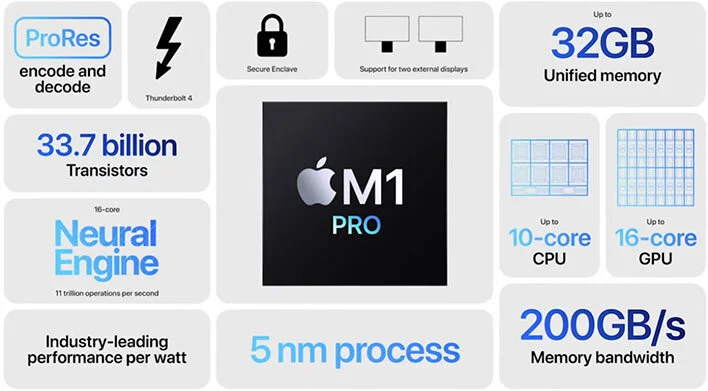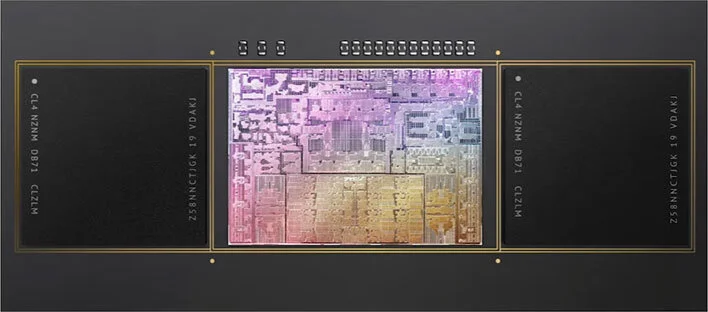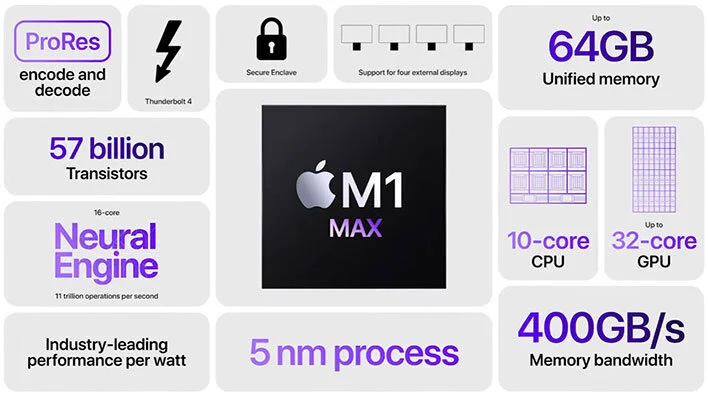Confirmed! Apple 10-Core M1 Pro, M1 Max Processors
Apple has officially announced its next-generation SoC design made specifically for the upcoming new MacBook Pro product line. Launched around the end of 2020, the M1 processor will now be joined by the M1 Pro and M1 Max. In addition, the chip is now more powerful and constructed on a 5nm process node.
First up, we have the M1 Pro; as claimed by Apple, the SoC will double the width of the memory interface, transmitting up to 200 Gbps of bandwidth shared between the CPU and GPU. It will be three times faster than the current Gen M1 chip. Apple states that there are a total of 33.7 billion comprised transistors.
As confirmed by past circulated rumors, the M1 Pro will have 10 CPU cores, that's eight performing cores, two efficiency cores, combined with a 16-core GPU. The GPU itself will feature 2,048 execution units, doubling the performance of the M1. In addition, the new MacBook Pro that contains the M1 Pro can be configured up to 32GB of RAM.
Onto the M1 Max SoC, it's even more potent with double the memory bandwidth than the M1 Pro up to 400 Gbps. The transistors expand to 57 billion, with memory configuration up to 64GB. The GPU cores will go from 16 to 32 cores, with double the execution units by 4,096.
The new MacBook Pro (the 14-inch model) will have a 3024 x 1964 display resolution; the 16-inch model ups the display resolution to 3456 x 2234. In addition, both displays will feature a 120Hz dynamic refresh technology. Gone will be the Touch Bar, but users will now gain access to Magsafe power. External ports (yes, the ports have returned) will include HDMI port, SD card slot, and 3-Thunderbolt ports.
The good news is you can now pre-order the new MacBook Pro, with prices starting at $1,999.Confirmed!!







